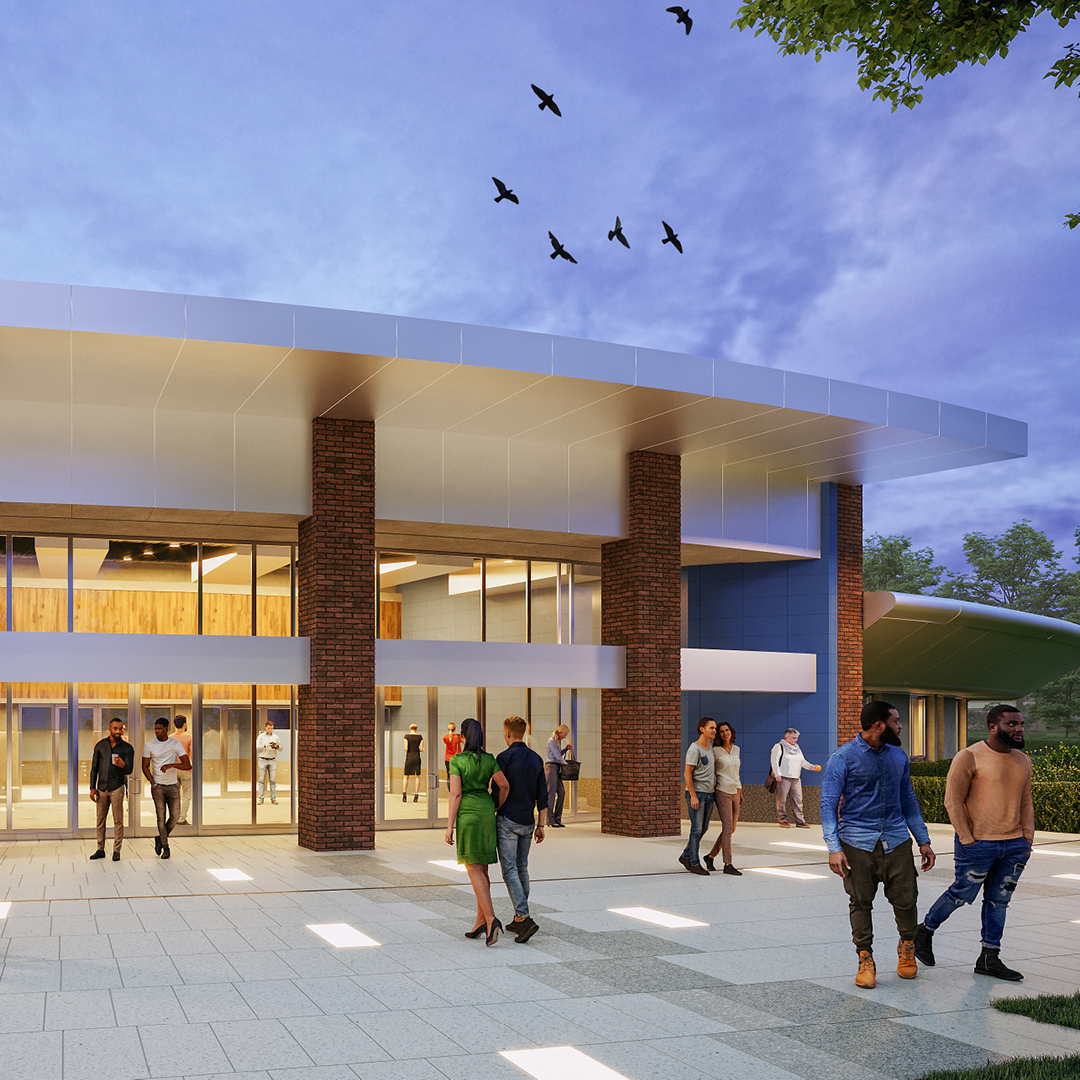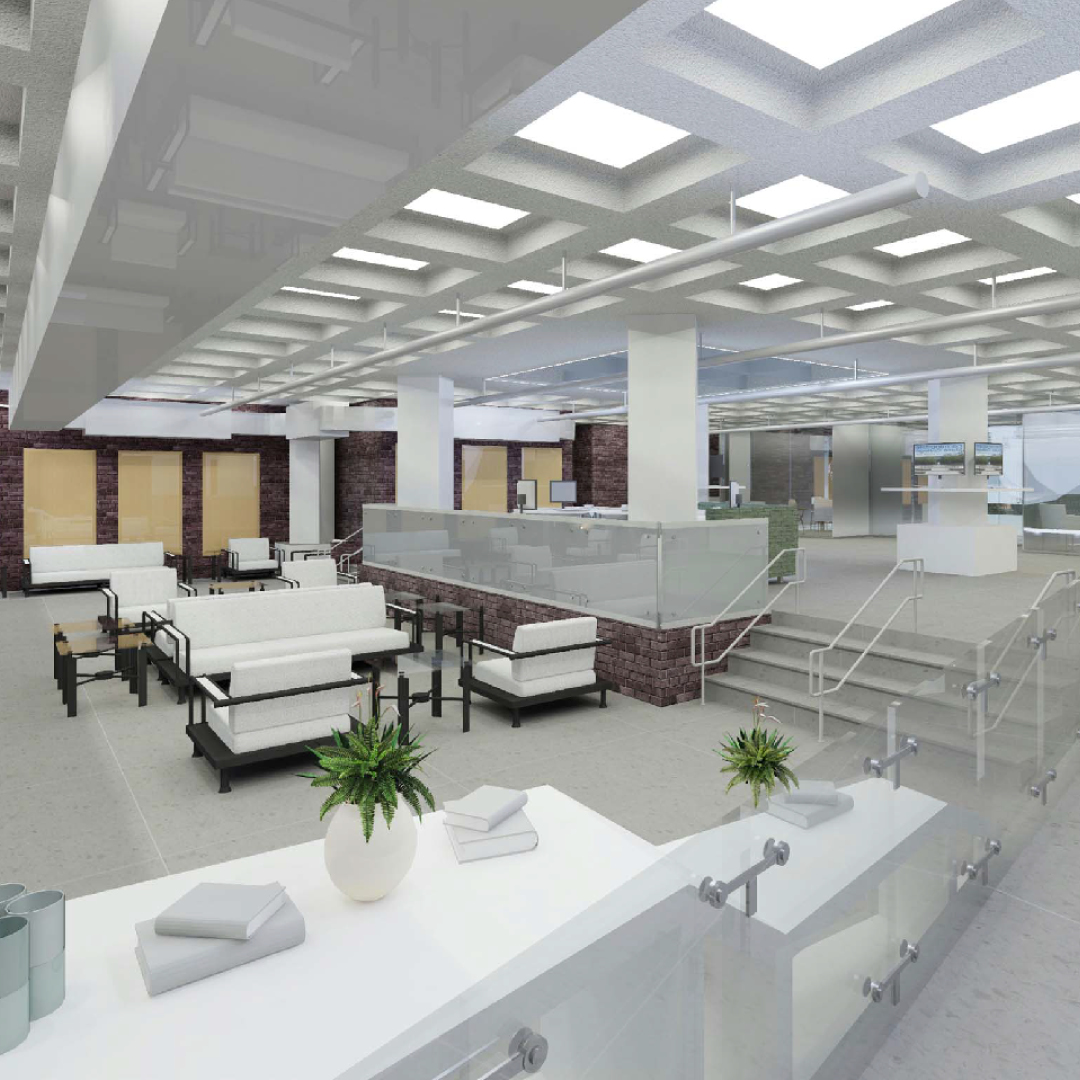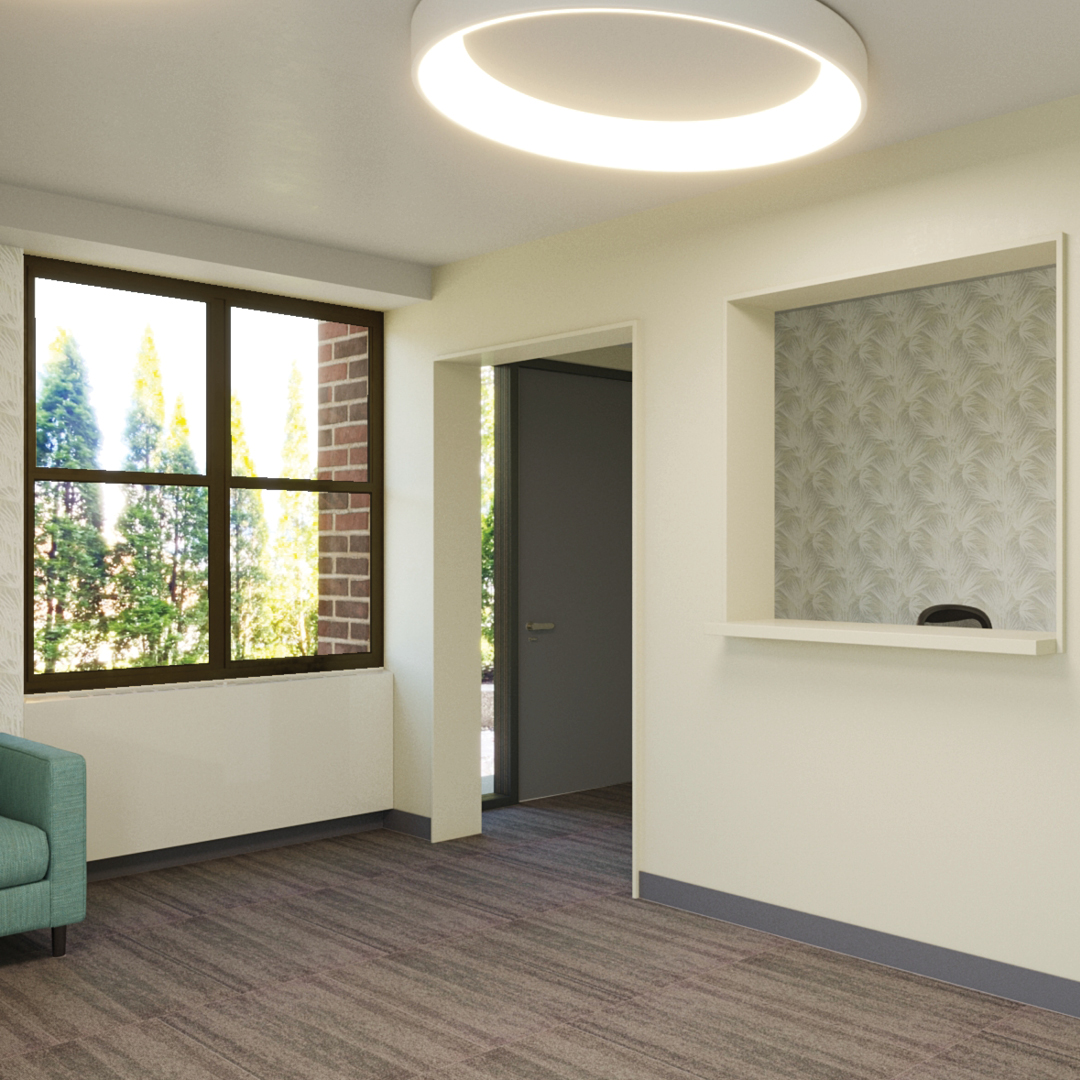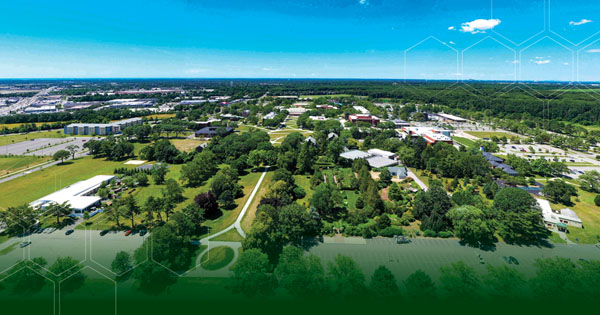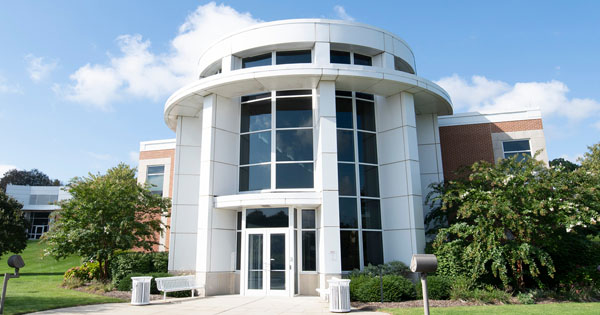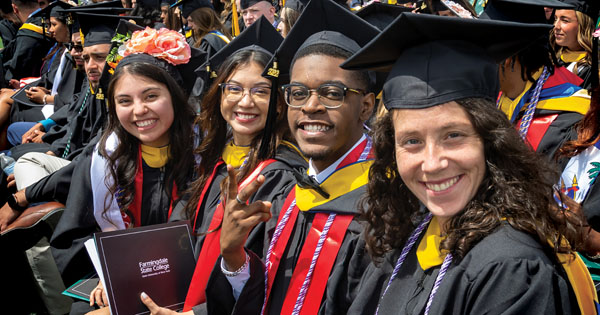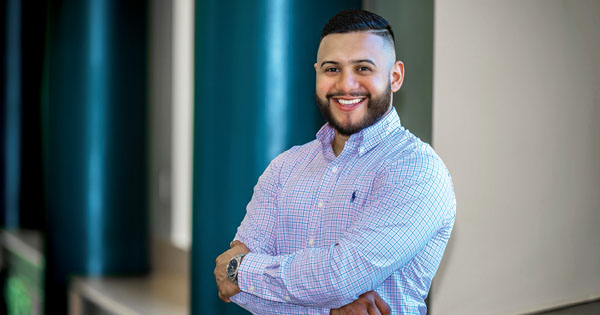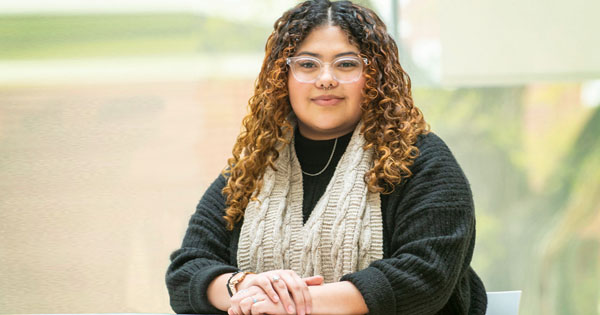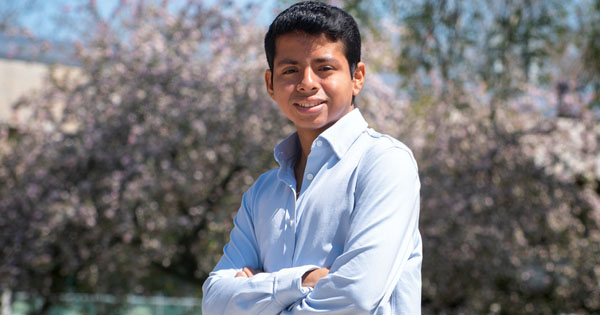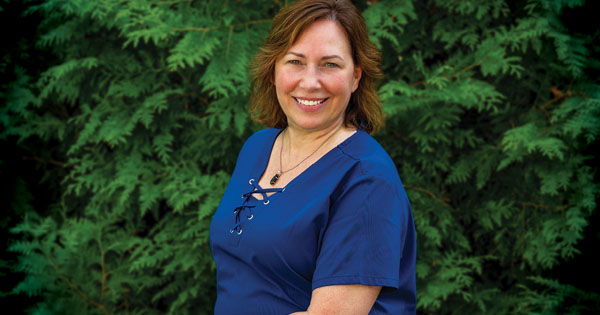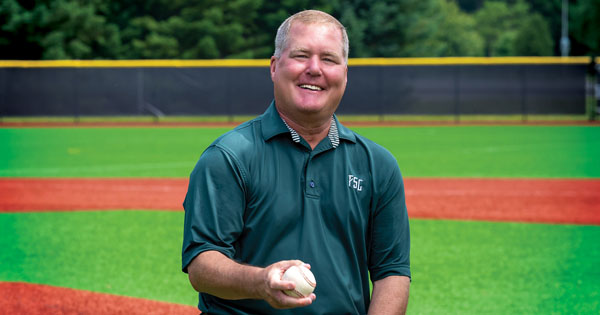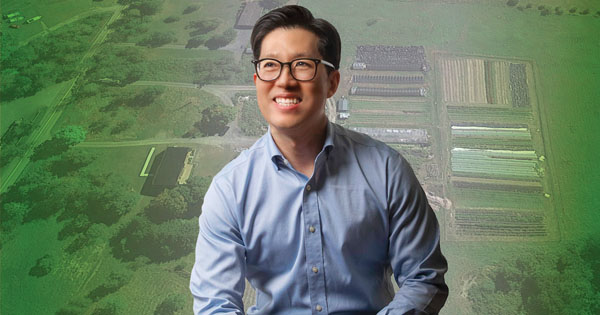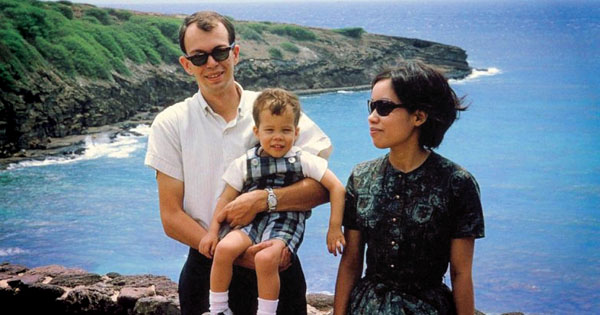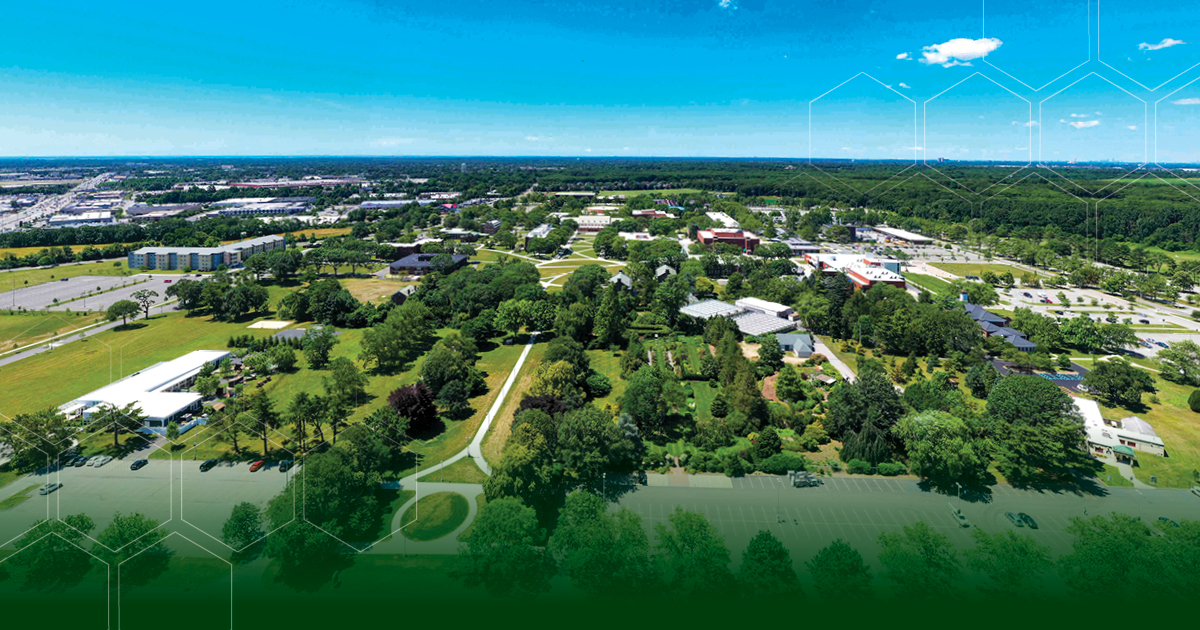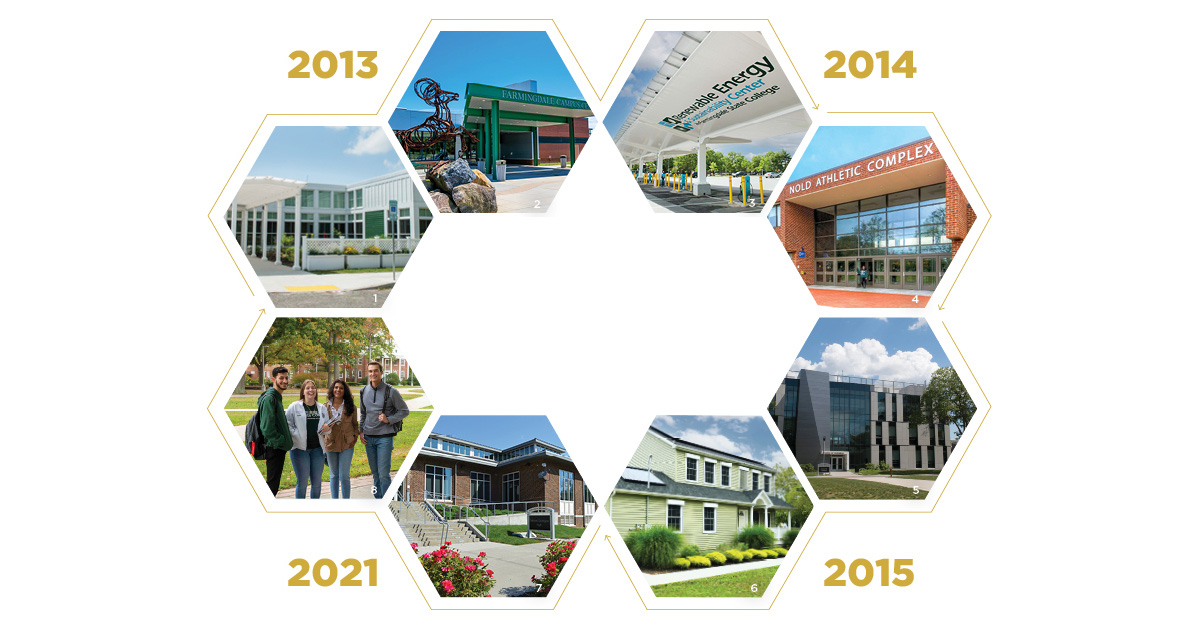For decades, Farmingdale State College was synonymous with cows. Originally founded in 1912 as the New York State School of Agriculture on Long Island, FSC retained its aggie-school identity long after the departure of the last bovine.
A slow and steady campus transformation has been replaced by giant strides. The rapid and extensive physical and academic expansion at the campus over the past 10 years not only pushed FSC front and center on Long Island’s radar, but got the state's and the nation's attention as well. Few vestiges of Farmingdale’s agricultural past remain, replaced by wind turbine–building facilities, airplanes, and up-to-date science and engineering laboratories.
And more changes are underway: renovations, new construction, and new courses designed to modernize the College while preserving its intimate feel. “The investment of nearly $250 million in capital projects over the next five years will dramatically transform the campus,” said Gregory W. O’Connor, Executive Vice President and Chief Financial Officer. “From the much-needed repair of critical building systems and infrastructure to large-scale interior renovations, these initiatives will enable Farmingdale State College to continue to provide outstanding education well into the future.”
The campus is currently working with the State University Construction Fund to develop a scope of work for a new Facilities Master Plan (FMP) that will include plans, targets, and objectives for the next 10 years of development on campus, O’Connor added.
The College was established to meet the needs of Long Island, and originally those were farming and industrial, noted William Steedle, an alumnus from FSC’s class of 1981 and parent of three children who attended FSC.
Steedle, now Assistant Dean of the School of Business and Associate Professor of Visual Communications, noted that FSC is the oldest public college on Long Island, adding, “We have always been tied directly to Long Island’s economy.”
One of FSC’s strengths continues to be its remarkable ability to anticipate and act on the local economy’s needs. Between 2009 and 2017, Farmingdale had a $2.51 billion impact on the region, according to the Long Island Association.
“We pivot well,” according to Steedle. “We identify the needs in the area and respond. It’s exciting to see. We went from cows, chickens, and pigs. I’ve been here 41 years and never been bored. If you pivot, you stay on top. It’s always been about telling Farmingdale’s story.”
The small regional college that graduated 15 students in 1917 is now the school with the second-largest undergraduate population on Long Island and a recognized leader in applied learning.
Over the past decade, the College has opened a new School of Business building, the Campus Center, and Bunche Plaza, renovated Nold Athletic Complex, and renovated Conklin Hall and renamed it Quintyne Hall. Enrollment grew to 10,000 for fall 2018, 2019, and 2020. New academic programs that complement existing strengths help to attract students, including Computer Security Technology, Business Analytics, Cannabis Management, Wind Turbine Construction, and Sport Management.
Yet, even as FSC expands, it retains a certain intimacy. “As much as we’ve grown, we still have a small college feel,” Steedle said. One of the biggest changes was the upgrade from a two-year to a four-year college starting in 1993, and while that was necessary for the College’s viability, it wasn’t completely painless.
The completion of the Campus Center in 2013 was another milestone. With more than 90 percent of the population commuting, there were few places for students to congregate between classes. Jack Petrich, an alumnus and the former Assistant Director of Physical Plant and alumnus who retired last year after 47 years, recalled that during his student days he would eat lunch in his car. “The Campus Center was a great improvement for students to congregate,” Petrich added. “It was a major project to get that up and running.”
FSC is launching itself into the future with new construction and renovations on campus, thanks to college funds and additional money from the New York State Construction Fund.
“There is something truly special about seeing students, faculty, and staff enjoying brand new space that we work so hard to develop or improve,” O’Connor said.
“We must work to embrace our long and storied history and preserve the classic architecture and design of these facilities, while enabling the upgrade of building systems and investment in new technology for teaching and learning,” he continued. “This is a truly rewarding experience and it will serve as a legacy of our dedication and commitment to our purpose as an institution of higher education.”
Currently underway are a complete renovation of Roosevelt Hall, at a cost of $29 million, to provide more space for student activities and a modern multi purpose room; renovations to the first floor of Knapp Hall to provide more space for student services; replacement of windows and the roof at Lupton Hall; repairs to the façade of Gleeson Hall; improvements to several parking lots; and the construction of a new underground utility infrastructure.
Projects under design and scheduled to start in 2023 include extensive renovations to Thompson and Sinclair Halls; construction of a new welcome center on the first floor of Laffin Hall; renovations to the first floor of Dewey Hall; improvements to campus restrooms; additional replacement of windows at Lupton Hall; a new steam distribution system; and improvements to the grounds.
Awaiting approval and funding is the proposed construction of a 40,000-square-foot Center for Computer Science and Information Technology Systems building at a cost of $63.3 million. The building is being designed to accommodate seven academic programs and about 2,000 students.
People have been impressed that the College has maintained so much green space while undergoing so much construction, said Library Director Karen Gelles, who has worked at the College for more than 20 years. “Parents see the value. When you invest in the facilities, it attracts kids. When they come to open house and see the beautiful facilities, they see themselves having fun here in those spaces.”
FSC continues to be focused on student-centered learning that prepares graduates to be exemplary citizens, equipped to excel in a competitive, diverse, and technologically dynamic society serving as an engine of opportunity for Long Island and beyond.
